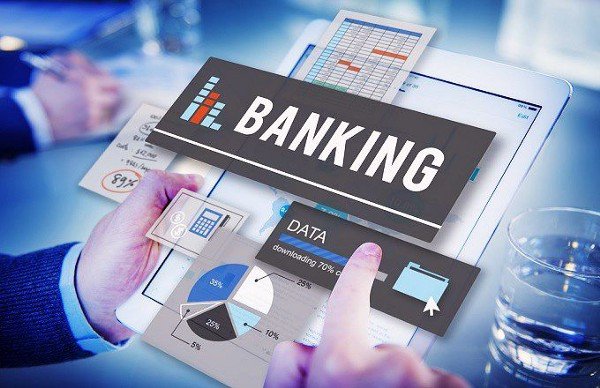Why cryptocurrency will Trump traditional banking institutions soon.


It was one of the pioneers of modern day computing, Bill Gates who made the provocative and still controversially discussed statement that in the future, banking would be needed, but banks themselves would not, and he made this observation as early as 1994. With every passing year, the background of this statement seems to gain traction.
A traditional banking system works with fiat money. Such currencies as the US dollar are printed whenever necessary making their total supply virtually unlimited and this leads to inflation.
The banking system is open to manipulations with exchange rate controls and fraud by high-ranking bankers and governments. Many banks operate on “fractional reserve banking”, in which they have cash only to serve a certain number of customers simultaneously — so if all customers will try to immediately withdraw their money, a bank will collapse.
The remaining disadvantages of the traditional banking system include:
— inflation can negatively affect the value of the money
— lack of transparency
— the high cost of bank operations
— exchange of information between banks in different countries is very slow, especially when it comes to different currencies.
https://twitter.com/Reuters/status/950992425845248000
Disruptive technologies by their nature force virtually all industries to fundamentally revise their business models or even define new ones. The technology that will replace banking institutions in the future is blockchain technology. Blockchain technology which is often referred to by many people as the new internet is a digital technology which allows digital information to be created and distributed but not copied. It was originally devised for the purpose of Bitcoin and digital currency today blockchain technology is being used for other purposes too including the formulation of banking aids and tools. From blockchain technology comes cryptocurrency which is a digital currency that works like email for money which can be sent from one wallet to the next.
What are some of the advantages of cryptocurrency?
Decentralization ~, Unlike the traditional banking, there is no central control in the blockchain. The exchange rate is influenced only by the market economy, and not by state regulation, while the transactions themselves are much simpler and more transparent than standard bank transfers because of what is called an open ledger which is virtually open for anyone in the network to view it.
Faster transactions ~ Transactions between different banks can take up to several days and usually are held only on business days. Blockchain allows you to reduce the transaction time to a couple of minutes, and processing can be done 24/7 unlike in banks where certain transactions can only be effected during their opening hours.
High level of transparency and security ~ Any changes made to the blockchain are publicly available to all parties. This increases the transparency and integrity of the process, as users can be assured that transactions will be executed as intended. In addition, all transactions cannot be changed or deleted.
Getting rid of unnecessary intermediaries ~ With the technology of blockchain, employees can work together without the need for a complex hierarchy. Technology at once relieves payments of the need to undergo a procedure for verifying payments, insurance, deposition and other procedures that complicate the process — and, therefore, from dozens of useless intermediaries.
The decrease in operating expenses ~ Excluding third-party intermediaries and the cost of additional operations, the blockchain is able to significantly reduce the cost of payments.
Will cryptocurrency make banks obsolete?
While big banks are taking small steps, there is are dozens of banking projects on ICO, the likes of Crypterium, Block Bank and Beluga Pay. They improve everything that usually comes to mind as disadvantages of traditional banking — slow payments, a currency exchange with high-interest rate, small chances of getting credit with a low score. Some projects are offered instant payments peer-to-peer, integration with NFC payment systems (ApplePay, SamsungPay, and AndroidPay) and easy lending process.
Beluga Pay as an example is a decentralized fiat and cryptocurrency point of sale system. The Washington Post calls it ‘’the mobile wallet service that’s a mix of Square and Stripe, is expanding rapidly with private and public clients. With half the country’s population under age 27, more than 100 million mobile phones, and only 15 percent using credit cards, it’s a potentially hugely lucrative play.”
Already over 1000 merchants have already adopted Beluga and at the time of writing this article the platform has had a couple of millions of dollars go through the system and about 250 000 transactions have been processed. Over 200 merchants are using Beluga Pay´s platform and recently, Mexico’s state-owned petroleum company PEMEX announced that it will start to accept Ethereum at participating gas stations starting December 1st, 2017 using the Beluga Pay platform. Beluga has already established a partnership with Mexico’s largest domestically owned bank with over $70B USD in assets together with Latin America’s largest incubator NXTP.
What will happen next?
It looks pretty simple. People will start using cryptocurrencies eventually — as soon as comfortable and convenient solutions for the most popular platforms are adopted into the mainstream. With the media buzz about everything that is connected to Bitcoin, Ethereum or any other type of currency continuing on, Worldwide adoption of cryptocurrencies is just around the corner.
https://twitter.com/Reuters/status/950992425845248000